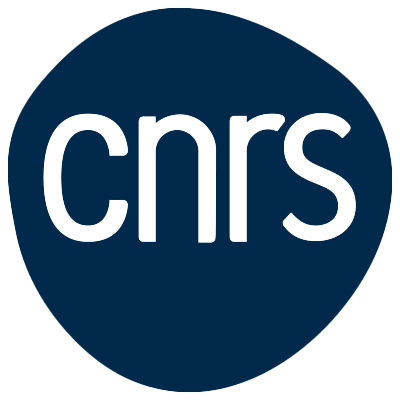Research Teams
Molecular Diversity, Metabolomics, Synthesis
Axes scientifiques
1) Synthesis of development of new active Biomolecules
The main objective of R. Benhida group over the last years has been to develop new chemical strategies to answer several challenging questions in biology and medicine using small organic molecules. This includes: the development of new synthetic methodologies, the development of modern drug discovery programs with the application of modern medicinal chemistry, nucleic acids chemistry and chemical biology for the identification and validation of new biological targets. The team has high contribution in the identification and validation of new bioactive molecules and novel relevant targets, particularly to overcome drug resistance in oncology.
2) Marine Natural Product
The Marine Natural Products theme focuses on the different aspects of the chemistry of natural substances with, mainly, the characterization and production of small natural molecules identified among the secondary metabolites of invertebrates and marine microorganisms. Many marine organisms, in particular invertebrates which are often associated with symbiotic microorganisms, represent an under-explored source of new natural products which are responsible for various biological activities in situ (antibiotic, antifungal, antifouling, etc.). even likely to be valued. These secondary metabolites frequently have original structures, often bioactive, different from those of the terrestrial environment. These are tools used in ecophysiology (toxins), biology (taxonomy), pharmacology or cosmetics. In the search for new therapeutic agents from the sea, about twenty molecules are at various stages of the clinical phases and five drugs of marine origin are currently marketed
3) Experimental and Computational Metabolomics
The team is dedicated to developing and applying experimental and computational methods for mass spectrometry-based metabolomics. Primarily utilizing high-resolution mass spectrometry data coupled with ultra-high-performance liquid chromatography (UHPLC), we possess strong expertise in analyzing, processing, and annotating a broad range of metabolites from microorganisms, plants, terrestrial and marine animals, humans, and the environment. We are developing an extensive set of advanced methods aimed at enhancing the depth of spectral acquisition and identification, both for comprehensive characterization of small sample sets and robust characterization in large-scale studies. Our facilities include a Q Exactive Orbitrap mass spectrometer (multi-pump Vanquish UHPLC system), and we have access to a tims-TOF Pro 2 for ion mobility measurement.
4) Artificial Intelligence for Molecular Innovation
Associated with the Interdisciplinary Institute for Artificial Intelligence (3iA Côte d’Azur), the team is pioneering the use of artificial intelligence for molecular innovation in chemistry. Our expertise and projects include developing models trained to predict molecular structures and their properties, as well as designing AI systems to accelerate the detection of metabolites and decode key molecular interactions in biological systems. Importantly, our goal is to create intuitive, AI-powered tools that assist researchers in collecting, querying, and analyzing both complex experimental data and literature information through natural language instructions. Additionally, we adapt our systems to promote AI-assisted teaching in chemistry and omics sciences. Our research activities are part of open science and are energized by close collaborations with colleagues from the University of Côte d'Azur and national and international partners.
1) Synthesis of development of new active Biomolecules
The main objective of R. Benhida group over the last years has been to develop new chemical strategies to answer several challenging questions in biology and medicine using small organic molecules. This includes: the development of new synthetic methodologies, the development of modern drug discovery programs with the application of modern medicinal chemistry, nucleic acids chemistry and chemical biology for the identification and validation of new biological targets. The team has high contribution in the identification and validation of new bioactive molecules and novel relevant targets, particularly to overcome drug resistance in oncology.
2) Marine Natural Product
The Marine Natural Products theme focuses on the different aspects of the chemistry of natural substances with, mainly, the characterization and production of small natural molecules identified among the secondary metabolites of invertebrates and marine microorganisms. Many marine organisms, in particular invertebrates which are often associated with symbiotic microorganisms, represent an under-explored source of new natural products which are responsible for various biological activities in situ (antibiotic, antifungal, antifouling, etc.). even likely to be valued. These secondary metabolites frequently have original structures, often bioactive, different from those of the terrestrial environment. These are tools used in ecophysiology (toxins), biology (taxonomy), pharmacology or cosmetics. In the search for new therapeutic agents from the sea, about twenty molecules are at various stages of the clinical phases and five drugs of marine origin are currently marketed
3) Experimental and Computational Metabolomics
The team is dedicated to developing and applying experimental and computational methods for mass spectrometry-based metabolomics. Primarily utilizing high-resolution mass spectrometry data coupled with ultra-high-performance liquid chromatography (UHPLC), we possess strong expertise in analyzing, processing, and annotating a broad range of metabolites from microorganisms, plants, terrestrial and marine animals, humans, and the environment. We are developing an extensive set of advanced methods aimed at enhancing the depth of spectral acquisition and identification, both for comprehensive characterization of small sample sets and robust characterization in large-scale studies. Our facilities include a Q Exactive Orbitrap mass spectrometer (multi-pump Vanquish UHPLC system), and we have access to a tims-TOF Pro 2 for ion mobility measurement.
4) Artificial Intelligence for Molecular Innovation
Associated with the Interdisciplinary Institute for Artificial Intelligence (3iA Côte d’Azur), the team is pioneering the use of artificial intelligence for molecular innovation in chemistry. Our expertise and projects include developing models trained to predict molecular structures and their properties, as well as designing AI systems to accelerate the detection of metabolites and decode key molecular interactions in biological systems. Importantly, our goal is to create intuitive, AI-powered tools that assist researchers in collecting, querying, and analyzing both complex experimental data and literature information through natural language instructions. Additionally, we adapt our systems to promote AI-assisted teaching in chemistry and omics sciences. Our research activities are part of open science and are energized by close collaborations with colleagues from the University of Côte d'Azur and national and international partners.


